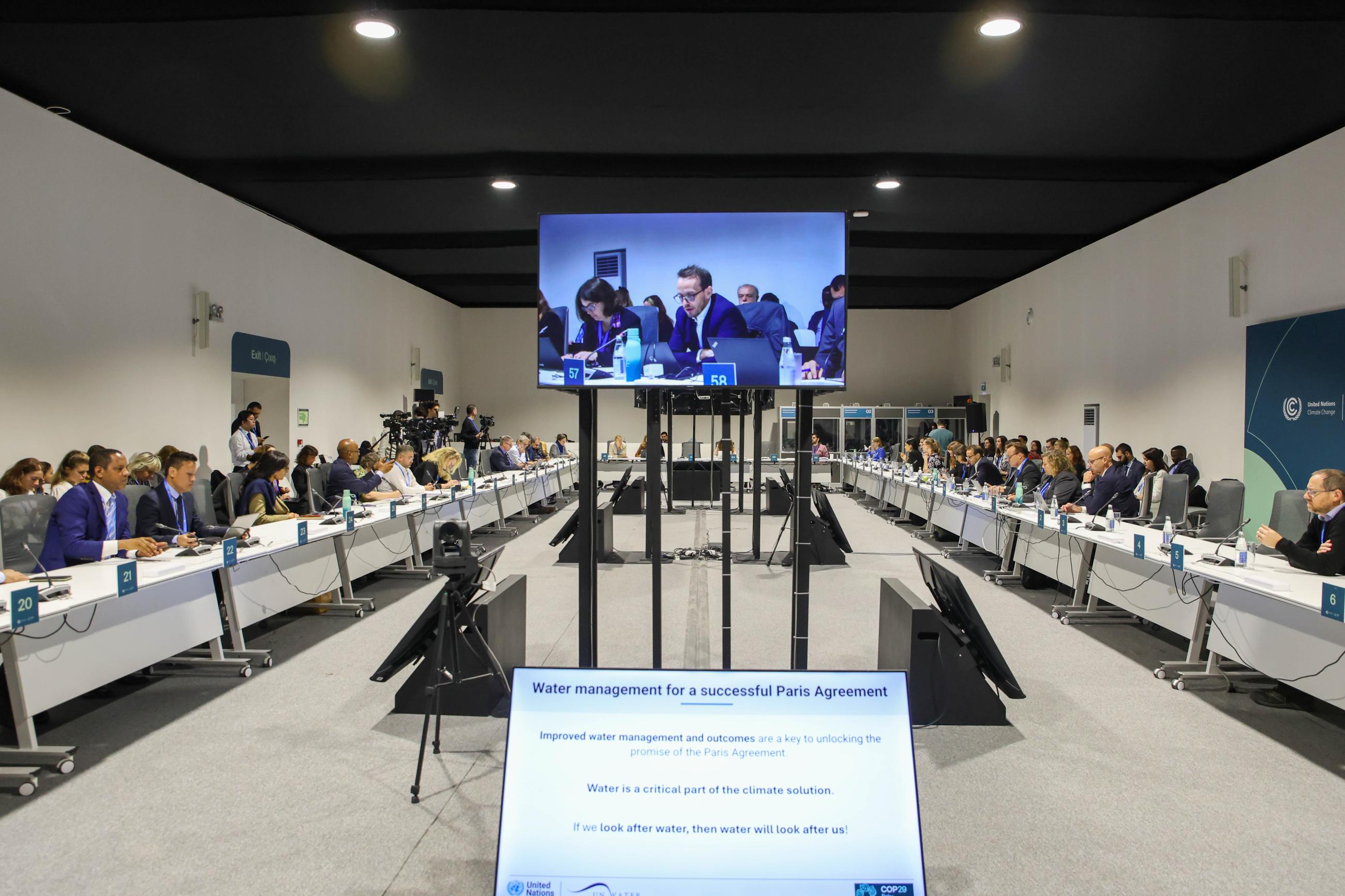
Water is a resource indispensable to life and clean energy solutions. However, it is under severe threat from rising global temperatures, erratic rainfall, and other climate pressures. As the world seeks to meet the Paris Agreement’s goals, integrating water into climate strategies has become a critical priority. This was the central focus of a high-level event preceding The Baku Dialogue on Water for Climate Action, bringing together key stakeholders to explore collaborative solutions for water-related mitigation and adaptation.
Moderated by Hurshid Rustamov of the UN Resident Coordinator Office in Azerbaijan, the event opened with remarks from Kamala Huseynli-Abishova, the Water for Climate Action focal point for the COP29 Presidency. She framed the Baku Dialogue as “a call for continuity and sharing” to unlock water’s potential for cross-sectoral impact, particularly across the Sustainable Development Goals (SDGs). “Water challenges are also water solutions,” she emphasized, highlighting the resource’s role as a cornerstone of climate adaptation and mitigation.
Stefan Uhlenbrook from the World Meteorological Organization (WMO) presented findings from the State of Global Water Resources 2023 report, which revealed that 2023 was the driest year for global rivers in the past three decades. He stressed that disrupted hydrological cycles require urgent global attention.
Additionally, Nicolas Franke of the WMO and UN-Water Expert Group on Water and Climate Change introduced the UN-Water Analytical Brief on Water for Climate Mitigation. The brief underscores how understanding water availability can inform mitigation decisions, emphasizing water’s integral role in achieving the Paris climate goals.
The UN Environment Programme’s (UNEP) Dianna Kopansky pointed to the importance of freshwater ecosystems in limiting global warming, advocating for the Integrated Water Resources Management (IWRM) approach and the protection of ecosystems through restoration projects.
Sonja Koeppel of the United Nations Economic Commission for Europe (UNECE) highlighted the transboundary nature of water resources and their minimal representation in National Adaptation Plans (NAPs) and Nationally Determined Contributions (NDCs). She urged nations to include data-sharing and inclusive stakeholder consultations in their climate plans.
Global Perspectives: Mainstreaming Water in Climate Policymaking
During the event’s second segment, international experts and government representatives called for a paradigm shift in how water is valued and managed. Wampie Libon from the Dutch Ministry of Foreign Affairs underscored the need for radical change, advocating for the inclusion of water at the centre of climate policies. She noted that while many nations include water in their national plans, these commitments are underfunded, hampering progress.
Ruth Davis from the UK Ministry of Foreign Affairs highlighted water’s foundational role in ecosystem health and its resonance with people's concerns, urging coordinated action across the UN system and conventions.
Rakotomavo Zo Andrianina of Madagascar's National Meteorological and Hydrological Service shared the country’s challenges with altered rainfall patterns and cyclones, emphasizing improved institutional frameworks and community-driven implementation of water-inclusive climate strategies.
Henk Ovink, Executive Director of the Global Commission on the Economics of Water, proposed treating water as a global public good and integrating freshwater and ocean resources into climate plans. He emphasized partnerships and transformative approaches to stabilize global water cycles and restore ecosystems.
In closing, Ingrid Timboe of the Alliance for Global Water Adaptation (AGWA) reflected on a poignant observation: “Climate is water.” She introduced AGWA’s water resilience tracker, a diagnostic tool to guide countries in crafting effective national climate strategies.
The event concluded with audience calls for greater collaboration with the private sector and holistic approaches to addressing water’s role in mitigation and adaptation. Participants echoed the need for robust data, political will, and financing to ensure water becomes a driver of global climate action.
As the Baku Dialogue gains momentum, it reinforces the message that tackling climate challenges means embracing water-based solutions and securing a resilient future for all.
